I am trying to build a big dataframe using a function that takes some arguments and return partial dataframes. I have a long list of documents to parse and extract relevant information that will go the big dataframe, and I am trying to do it using multiprocessing.Pool to make the process go faster.
My code looks like this :
from multiprocessing import *
from settings import *
server_url = settings.SERVER_URL_UAT
username = settings.USERNAME
password = settings.PASSWORD
def wrapped_visit_detail(args):
global server_url
global username
global password
# visit_detail return a dataframe after consuming args
return visit_detail(server_url, args, username, password)
# Trying to pass a list of arguments to wapped_visit_detail
visits_url = [doc1, doc2, doc3, doc4]
df = pd.DataFrame()
pool = Pool(cpu_count())
df = pd.concat( [ df,
pool.map( wrapped_visit_detail,
visits_url
)
],
ignore_index = True
)
When I run this, I got this error
multiprocessing.pool.MaybeEncodingError: Error sending result: '<multiprocessing.pool.ExceptionWithTraceback object at 0x7f2c88a43208>'. Reason: 'TypeError("can't pickle _thread._local objects",)'
EDIT
To illustrate my problem I created this simple figure
This is painfully slow and not scalable at all
And I am looking to make the code not serial but rather as parallelized as possible
Thank you all for your great comments so far, yes, I a using shared variable as parameters to this function that pulls the files and extract the individuals dataframes, it seems ot be my issue indeed
I am suspecting something wrong in the way I call pool.map()
Any tip would be really welcome

